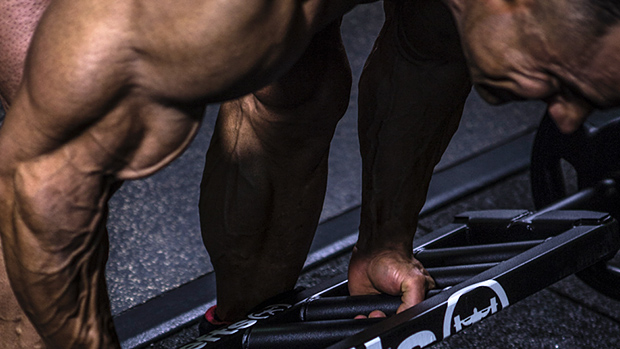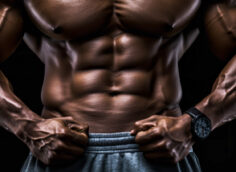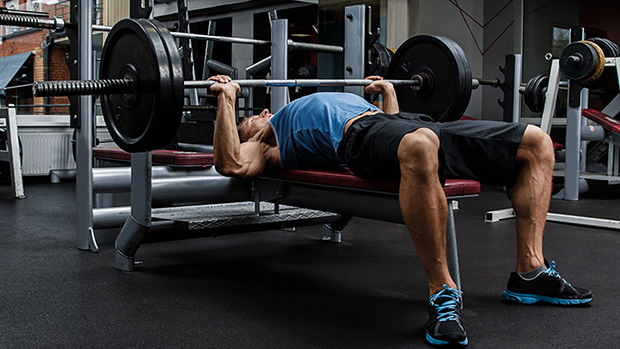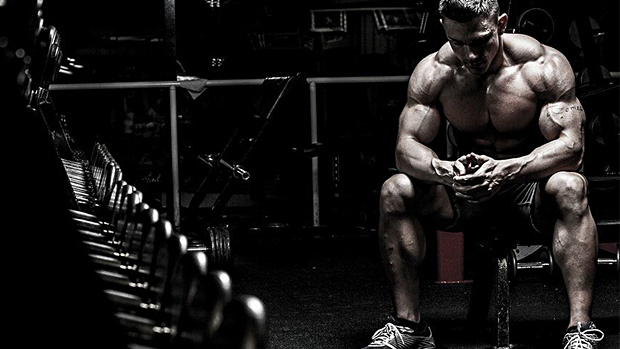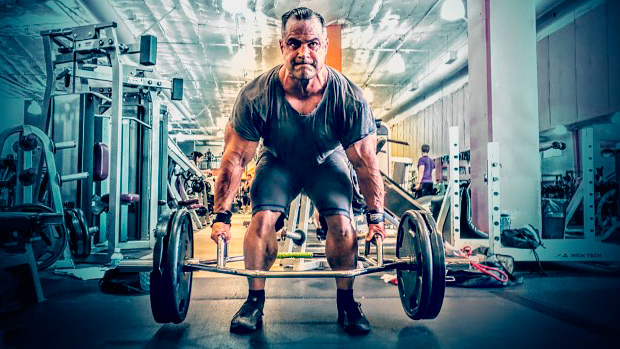Most of us know that if we don't lift heavy while dieting, the only bellies that shrink are our muscle bellies. Oddly enough, though, few people actually remember that fact of physiology when they start dieting.
Instead, they start doing higher reps and more cardio. It's as if the sudden cut in calories caused a clump of ham to dissolve loose from an artery and travel up to the brain and cause a mini, logic-impairing stroke.
Besides, doing cardio to burn calories is a fool's errand. Even the most God-awful, painful cardio you can inflict on yourself only burns a couple of hundred calories in an hour.
Sure, if you were to somehow gain the ability to lunge up the side of a skyscraper wearing a 100-pound vest while using your hands to slap out a Metallica drum solo on your butt cheeks, you might burn some serious calories, but pretty much anything short of that is just a muscle-eating waste of time.
Most serious dieting has its roots in the kitchen, i.e., body fat is better controlled through diet than exercise. However, we're forgetting about EPOC, or excess post-exercise oxygen consumption. Certain forms of exercise cause you to burn more calories after you QUIT working out and, when combined with dieting, can lead to appreciable fat loss.
When it comes to weights, lifting heavy, in addition to preserving muscle while dieting, ends up burning more calories (through EPOC) than high-rep training, which is all the more reason to forget the high-rep, bouncing-around-like-a-ninny stuff.
The fact that you don't need dynamic exertion (bouncing around like a ninny) to augment EPOC has been shown through a bunch of studies, but not many studies have shown that lifting heavy weights evokes more EPOC than lifting light weights.
One such study, though, was done several years ago by researchers from Georgia Southern University. The scientists recruited 14 experienced lifters and had them do two whole-body workouts consisting of 9 basic exercises. They did two sets of each exercise while resting one minute between sets.
For their first workout, they used weights that were 45% of their 8RM (in other words, they used a weight that was 45% of the weight they could lift 8 times). They ended up doing sets of 15 reps, which is the rep range a lot of deluded lifters use when trying to lean up. For their second workout, they used a weight that was 85% of their 8RM and ended up doing approximately 8 reps.
It turned out that both exercise sessions burned the same amount of energy (calories). However, the higher intensity workouts (85% of 8RM) caused the trainees' hearts to beat faster and their lactic acid concentration to rise more than the lighter-weight workouts.
Furthermore, there was a significant difference in EPOC:
- Twenty minutes after the workout, the heavy weights group exhibited almost double the EPOC of the light weights group.
- Forty-five to sixty minutes after the workout, the EPOC of the heavy weights group was more than twice the EPOC of the light weights group.
- And 105-120 minutes after the workout, the EPOC of the heavy weights group was about three times the EPOC of the light weights group.
The message is clear, screw your intuitive instincts. Lifting heavy while dieting ends up burning more calories than doing high reps of light or lighter weights. It also means you'll retain more muscle.
- Thornton MK, Potteiger JA. "Effects of resistance exercise bouts of different intensities but equal work on EPOC." Med Sci Sports Exerc. 2002 Apr;34(4):715-22.

